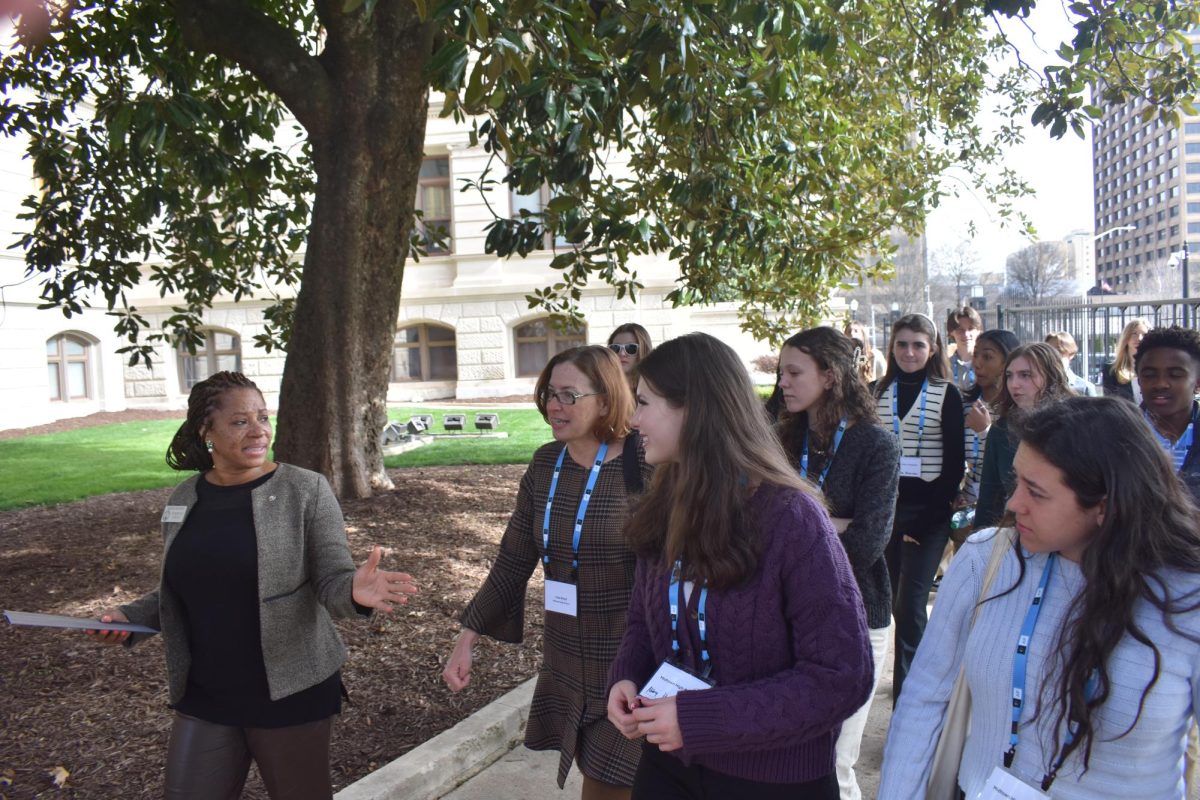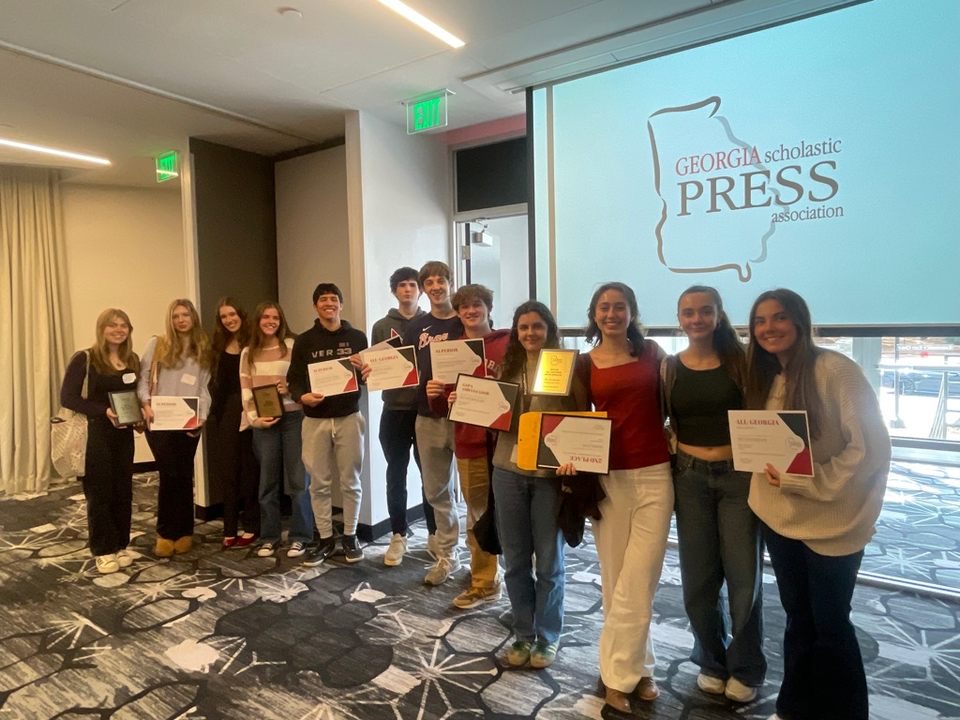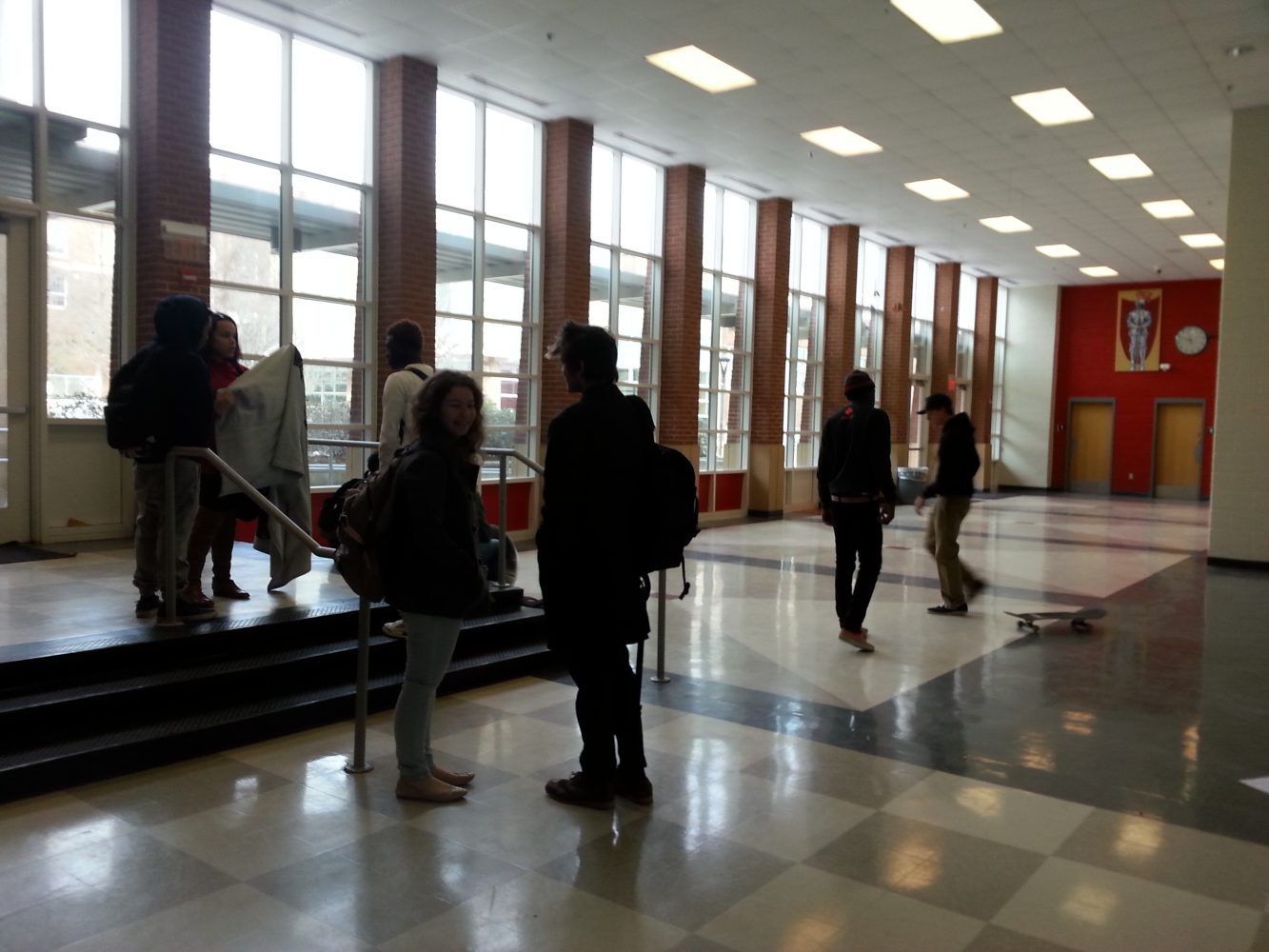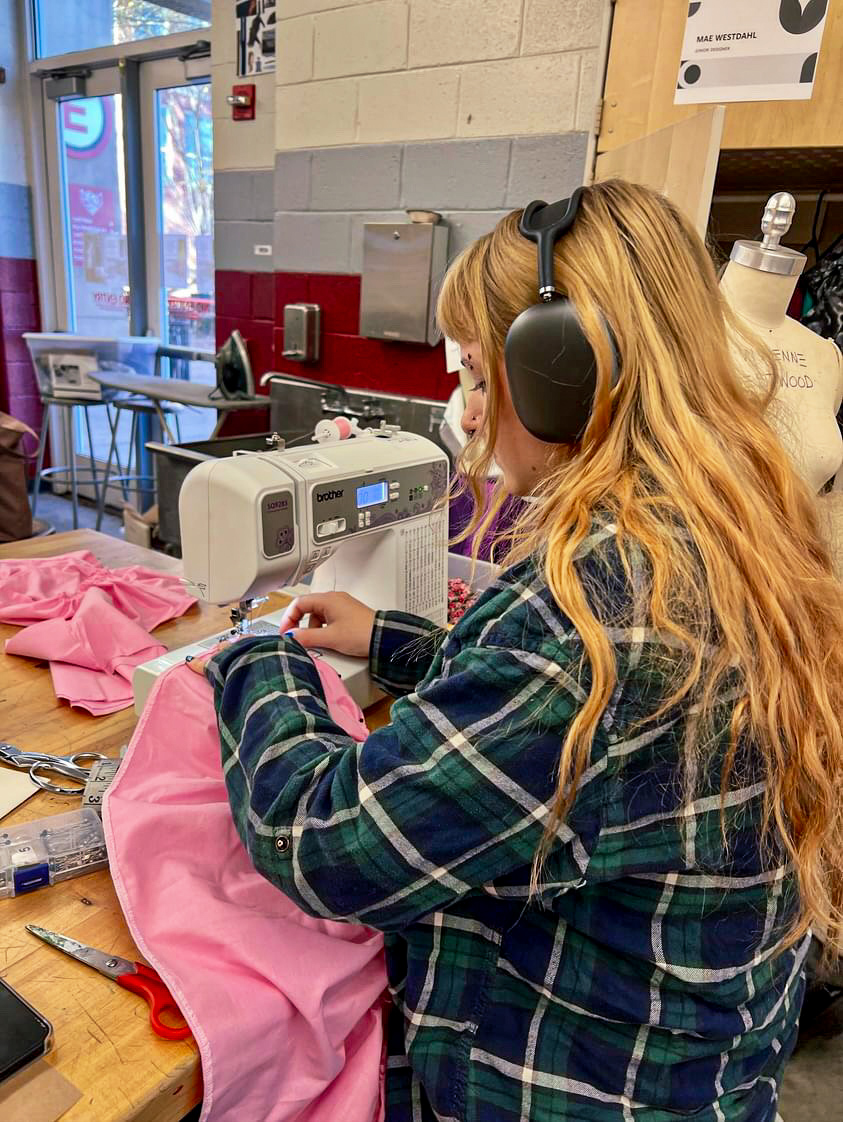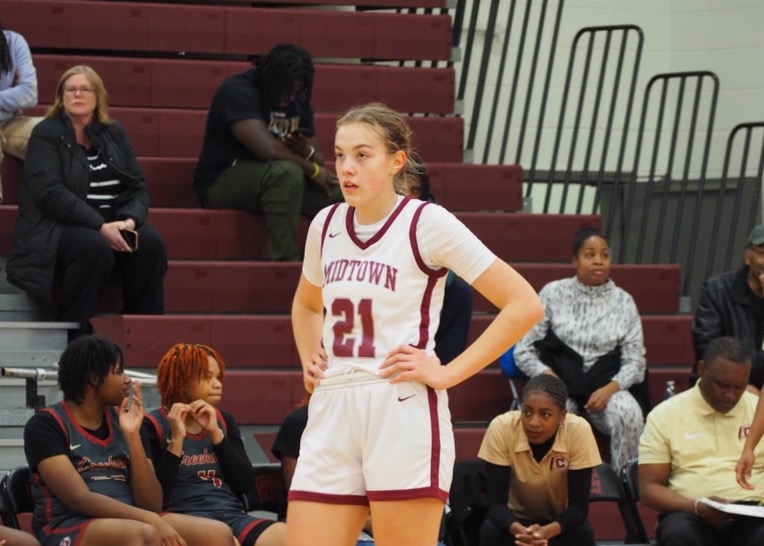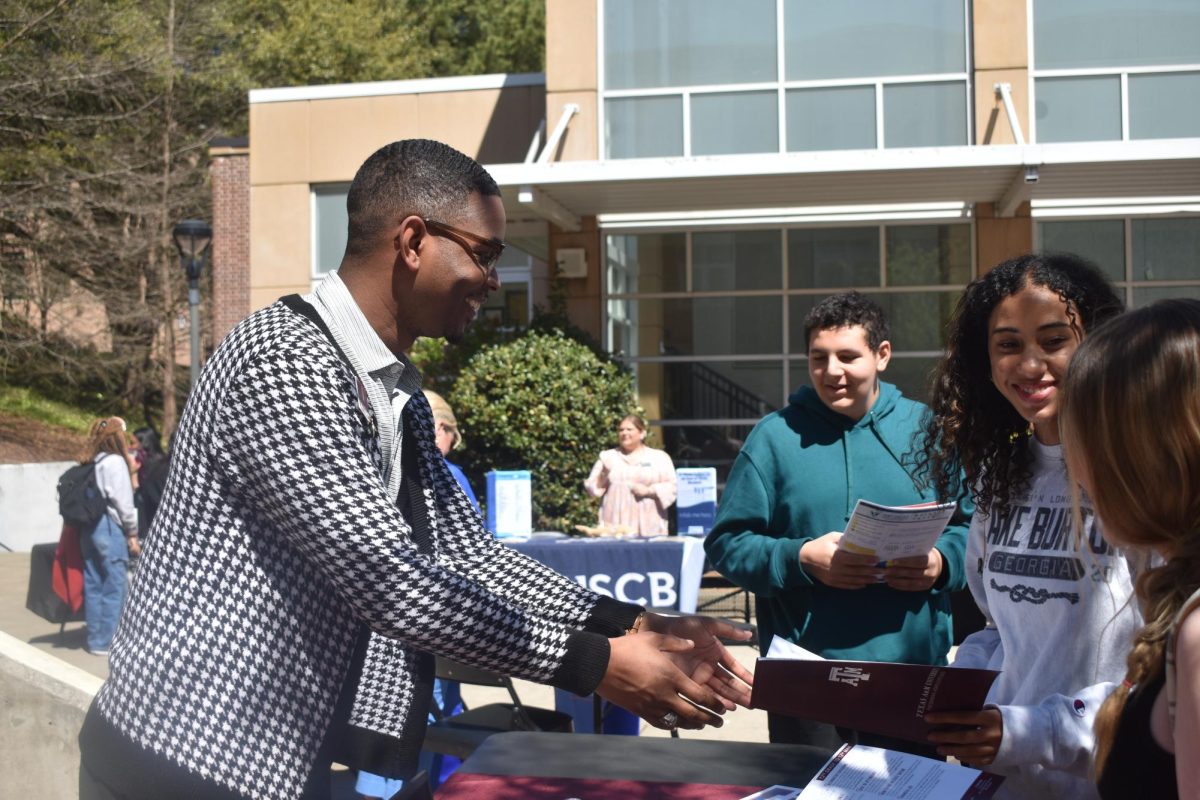
By Will Taft and Nick Hamilton
On a typical Wednesday, junior Uzuki Kakinuma leaves her advisement class and heads for the music wing, a routine readily accepted by both her advisement teacher Ms. Harris and her orchestra teacher Mr. Rodriguez.
“It’s just enough time for me to practice during the day, or jam with my friends,” Kakinuma said, “ I think that goes for most musicians here. Everyone’s like, ‘Meet me at advisement.’”
Kakinuma’s case is not unique. Many Grady students do not consider advisement, a period mandated by the state to “erase student anonymity” and “lead students to make more informed choices,” worth their time. That’s why next year, in an effort redress current advisement failings and to move into compliance with the state, Grady will shift to a longer 90-minute advisement period structured around student interests and extracurriculars.
Willie Vincent, Business and Entrepreneurship academy leader, said the current advisement system fails to forge bonds between teachers and students, instead resulting in “sheer chaos.”
Grady English teacher Nalin Needham expressed similar sentiments, citing the brevity of the current advisement period as the cause of the chaos.
“My confusion is always sort of laid in the fact that we only see those kids once a week,” Needham said. “ If we’re going to serve as advisers, we need to have that time to build a relationship and trust.”
Students and teachers alike expressed frustration with the lessons, often in the form of PowerPoint presentations, disseminated by counselors to inform students on topics ranging from graduation requirements and standardized tests, to illicit drug use.
Senior Reid Williams, who attends literature teacher Larry McCurdy’s advisement finds that the presentations seem to be hastily prepared and therefore ineffective.
“It’s a half-assed put-together lesson,” Williams said. “It’s not effectively moving.”
Junior Sajjad Ali said he was pleased with the quality of the lessons, but that the limited lesson material translated into repetition from year to year.
“[In Mr. Cramer’s advisement] we would go over all these PowerPoints that were repetitive,” Ali said. “They were the same PowerPoints at the same times of the year both years.”
Needham said the lessons often come across as irrelevant to students, particularly when the teacher reads straight from the power point. To him, it can be a struggle at times to make the lessons feel genuine.
“The problem is it’s forced,” Vincent said. “It’s artificial.”
While the advisement period is technically dedicated to the interaction between students and the adviser to help guide students as they move through high school, oftentimes advisement does not go according to plan.
“I’ve never been taught a lesson,” Kakinuma said. “Advisement is like chill time, if you will. People can take naps, get on our phones.”
Furthermore, Vincent said the fact that advisement is a “non-graded experience” does not foster participation. Without an incentive to stay in class, many students wind up in the hallways, disregarding any lesson that may or may not be occurring in their classroom. Initially teachers feared the increased advisery time would just become increased time for students to “hang out in the halls.”
“We are now doing it under duress,” Vincent said, referring to increasing the time per week of advisement.
Vincent said the new advisery system will capitalize on existing relationships between students and teachers for a more worthwhile experience and incentivize showing up to class.
“Our registrar Ms. Holland said in this system you’re going to have to allow students to pick their own advisement teachers,” Vincent said. “What will happen is they will pick an advisement teacher with whom they already have that relationship and they will be more inclined to go to advisement.”
Grady teachers met the proposal with enthusiasm when they realized they could use advisement to share their interests with engaged students who wanted to be in their classroom. Teacher engagement, and the authenticity that comes with it, will be as crucial as student engagement to the future effectiveness of the proposed system, Vincent said.
The administration decided upon an advisement system with classes centered on activities and clubs, and took suggestions from teachers for possible programs. Aside from a debate team advisement and football advisement, teachers have proposed new novel programs such as a fraternity and personal fitness advisement. Some teachers plan on hosting lessons for students from different advisements to cycle through. McCurdy, for example, expressed interest in teaching a class during the period on writing college essays.
“You have so many students who are already part of something, why not make that something a part of the school day?” Vincent said.
For students who not already in clubs, the new advisement could become a way to explore underdeveloped interests. As the teacher for Grady’s literary magazine, The Unmasking, Needham said the new method of organization could give students interested in writing for the publication an opportunity to try it out in his creative writing advisement before officially joining.
The additional advisement time could also be used to complete the standardized tests that “plagued” the fall semester. According to Vincent, many teachers will be thrilled to allocate a specific time in the week for completion of standardized tests.
For Kakinuma, the structural changes wouldn’t change her behavior but only legitimize what she already does.
“It’s really no different from what we do right now,” Kakinuma said. “It’s just labeled. I guess that’s OK because it just prevents me from breaking any rules.”
Freshmen, however, will still not get to select their advisement, instead attending “freshman focus” homerooms. Like other current Grady students, freshman will go through the ritual of watching the counselor’s PowerPoints.
But for everyone else, the new advisement holds out hope that future advisement time may be better spent.
“ I hope the proposed change works out next year because I think it’s a really smart approach to meeting the state imposed requirement,” Needham said.




